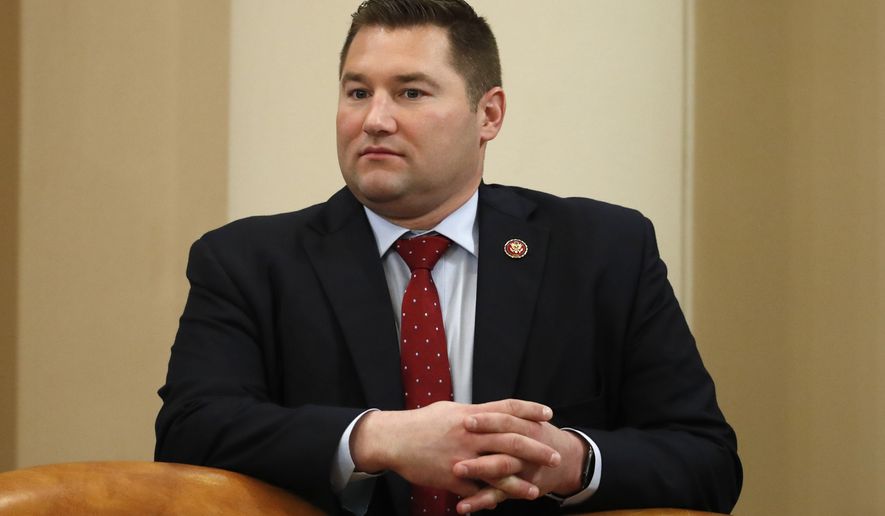OPINION:
Editor’s note: This is part of a series “To the Republic: Rediscovering the Constitution.” Click HERE to read the series.
“Each State shall appoint, in such Manner as the Legislature thereof may direct, a Number of Electors, equal to the whole Number of Senators and Representatives to which the State may be entitled in the Congress.”
The Constitution is designed to ensure that the president represents all Americans: The majority and the minority, urban communities, rural communities, big states, small states, and every region.
To accomplish that, it sets forth a unique method for electing a president, one that helps ensure that he or she can fulfill the responsibilities of representing both our nation’s people and our nation’s individual states.
The Electoral College accomplishes this crucial task by assigning the responsibility of electing our president to the states, and by its dual allocation of the number of electors per state. It grants states two electoral votes for their two senators and one electoral vote for each congressional district. Our Founders intentionally designed this compound structure of allotting electoral votes to the states to replicate the structure of the legislative branch.
As James Madison explained in Federalist No. 39: “The immediate election of the President is to be made by the States … The votes allotted to them are in a compound ratio, which considers them partly as distinct and coequal societies, partly as unequal members of the same society.”
The House of Representatives derives its powers from the people on a proportional basis, while the Senate derives its powers from each state equally. Through the Electoral College, the president derives his or her power from each state both equally and on a proportional basis. This prevents those from less-populated states or regions from becoming inconsequential, powerless, distant and despondent.
The Founders recognized that without the Electoral College, a few densely populated areas would disproportionately affect the outcome of presidential elections and dominate the attention of nationally elected officials. With such direct election, presidential politics would overlook large swaths of our nation and the many hard-working Americans who live there, effectively depriving these citizens of executive branch representation.
Electing the president in a national popular vote would disenfranchise farmers, ranchers, miners, small-business owners, and countless other sectors vital to our nation’s welfare and security. Farming and ranching by nature require low population densities, and the location of resources determines where mining occurs. These sectors should receive the same respect and consideration as the service, finance, and technology sectors in densely populated areas — and not be deprived of them because of the geographical demands of their way of life.
The Electoral College preserves more than simply a geographical balance of power, however. An old saying describes direct democracy as “two wolves and a sheep voting on what to have for lunch.” The Founders designed the Electoral College as a cornerstone of the republican, federalist system to prevent this “two wolves and a sheep tyranny of the majority.”
A republican, federalist system distinguishes itself from a direct democracy mostly in its use of checks and balances on the majority. These checks and balances act as institutional circuit breakers on the passions and power of the majority, preserving minority rights.
Perhaps more importantly, in addition to preserving minority rights, the Electoral College enhances stability in a democratic system of government. History has shown that a passionate majority too often sacrifices the weaker party in a direct democracy. The resulting turbulence and contention rapidly lead to the end of these “true democracies.” Alexander Hamilton described “the ancient democracies, in which the people themselves deliberated, never possessed one feature of good government. Their very character was tyranny; their figure, deformity.”
The Founders focused on preserving the American people’s long-term self-governance by empowering majorities to lead but requiring a broader base of support to govern fully. The Electoral College achieves this delicate balance for the executive branch through federalism.
Duly elected presidents receive a mandate to rule by winning the majority of the states’ electors, and to be successful, they must also balance the interests of this broad and diverse coalition while governing. This balance works to prevent radical, reactionary policies and promote thoughtful deliberation and compromise among competing interests.
Our states serve as the foundation of the federalist system the Founders created to transform 13 former British colonies into a “more perfect union.” The Electoral College upholds and promotes the federalist ideals so integral to our Constitution. It protects minority rights and enhances stability in our democratic-republic system.
Attacks and threats to abolish the Electoral College, which stem from ideals contradictory to our Founders’ goal of self-governance, would consolidate power and restrict liberty. If we fail to challenge these attacks openly and vigorously, we will sacrifice our Republic, our freedoms, and our right to self-governance.
⦁ Rep. Guy Reschenthaler, Pennsylvania Republican, was a district court judge and served in the U.S. Navy Judge Advocate General’s Corps (JAG) during the Iraq War. He is a member of the House Judiciary Committee.





Please read our comment policy before commenting.